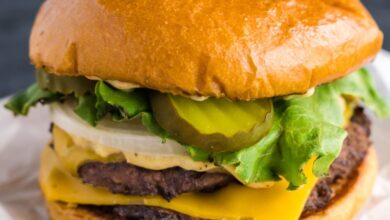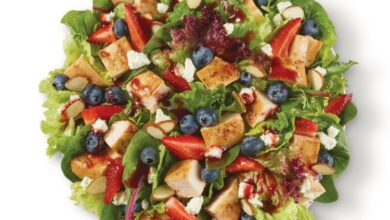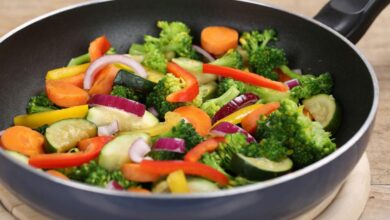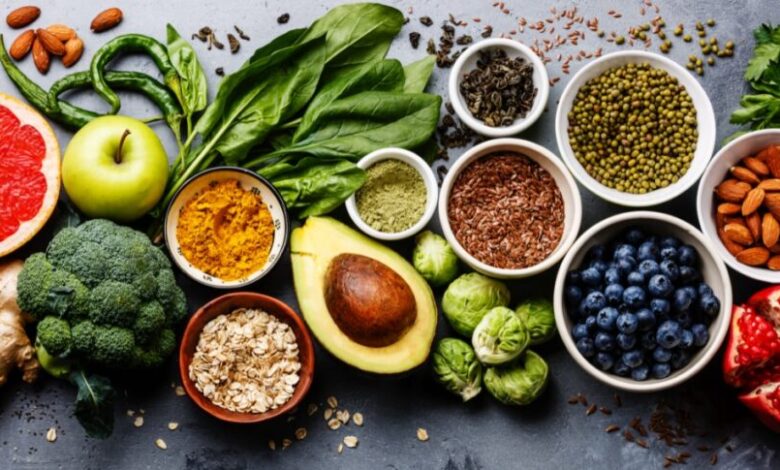
Nutrient-Dense Summer Foods to Keep You Fuller Longer
Nutrient dense summer foods to keep you fuller longer – Nutrient-dense summer foods to keep you fuller longer are the key to enjoying the season without sacrificing your health or feeling constantly hungry. From vibrant fruits and vegetables bursting with flavor to refreshing beverages, summer offers a bounty of options that can fuel your body and keep you satisfied throughout the day.
This post will explore the best nutrient-dense summer foods, provide recipe ideas, and offer tips for incorporating these delicious choices into your daily routine. We’ll delve into the science behind satiety, explore how different foods impact fullness, and provide practical advice for managing your appetite and enjoying the summer season to the fullest.
Summer’s Bounty: Nutrient-Rich Foods
Summer is a time to enjoy fresh, vibrant produce. It’s also a time to focus on nutrient-dense foods that can help you feel full and satisfied. These foods are packed with fiber, vitamins, and minerals that not only nourish your body but also keep hunger pangs at bay.
Summer Fruits and Vegetables for Satiety
Summer fruits and vegetables are naturally high in fiber, which is essential for feeling full. Fiber slows down digestion, making you feel satisfied for longer. In addition to fiber, many summer fruits and vegetables are also rich in water, which further contributes to satiety.
Let’s explore some of the best choices for a summer diet:
| Food | Fiber Content (grams per 100g) | Key Nutrients | Satiety Benefits |
|---|---|---|---|
| Berries (Strawberries, Blueberries, Raspberries) | 2-4 | Vitamins C, K, and antioxidants | High fiber content and low calorie density promote satiety. |
| Watermelon | 0.6 | Vitamin C, Lycopene, Potassium | High water content helps you feel full, while the natural sugars provide a quick energy boost. |
| Avocado | 6.7 | Healthy fats, Vitamin C, Potassium | The healthy fats in avocado contribute to satiety and keep you feeling full for longer. |
| Tomatoes | 1.2 | Vitamin C, Lycopene, Potassium | Tomatoes are a good source of fiber, which helps with satiety. |
| Cucumber | 0.6 | Vitamin K, Potassium | Cucumber’s high water content contributes to a feeling of fullness. |
| Zucchini | 1.6 | Vitamin C, Potassium | Zucchini’s low calorie density and fiber content make it a satisfying summer vegetable. |
Fueling Your Summer Activities: Nutrient Dense Summer Foods To Keep You Fuller Longer
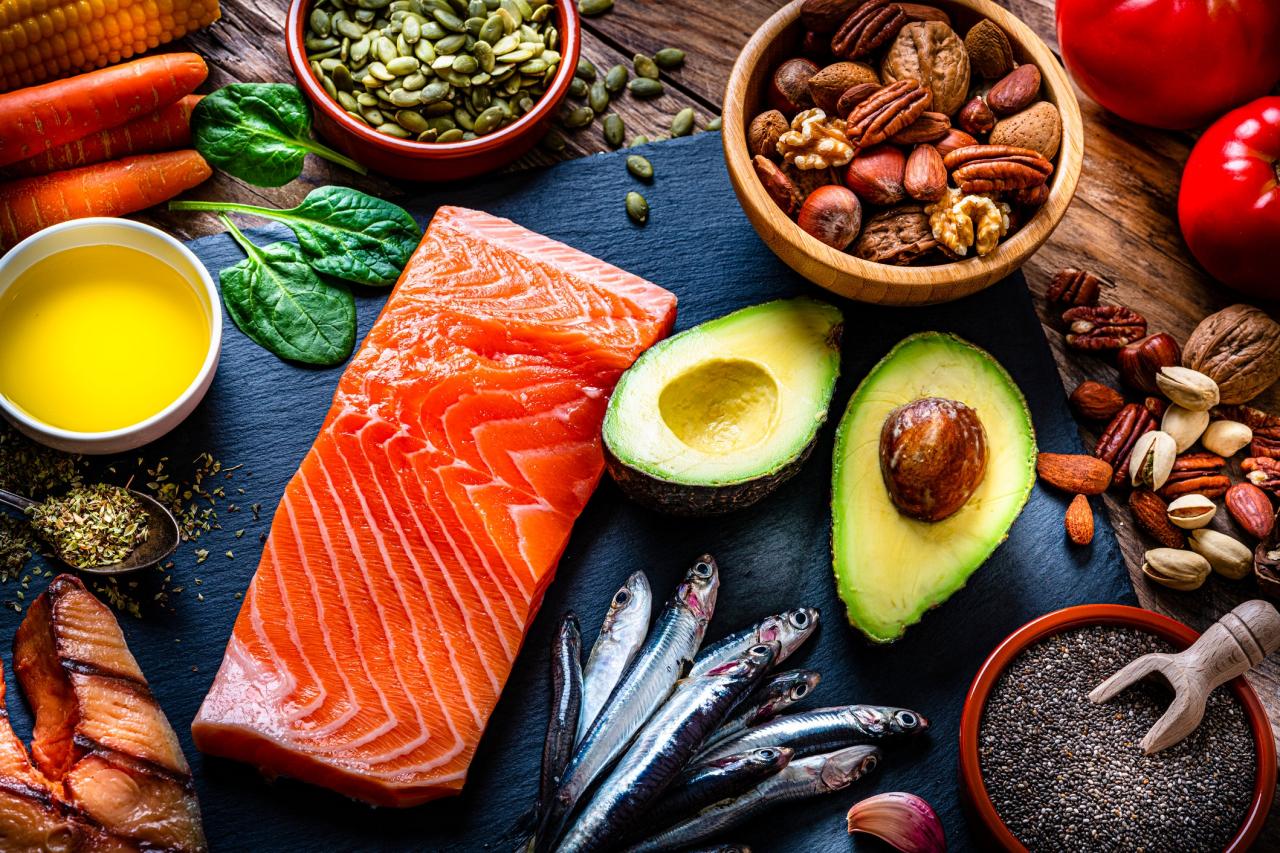
Summer is a time for outdoor adventures, from hiking and biking to swimming and gardening. To power through your active days, it’s crucial to fuel your body with nutrient-rich foods that provide sustained energy and keep you feeling full and satisfied.
Summer’s bounty brings us vibrant, nutrient-dense foods that keep us feeling full and satisfied. From juicy berries to crisp cucumbers, these seasonal delights are packed with fiber and vitamins, making them perfect for healthy, fulfilling meals. For a hearty and satisfying dish that incorporates the goodness of summer greens, try my crockpot kale and sausage farrotto bowl.
This slow-cooked masterpiece is bursting with flavor and texture, and the hearty farrotto provides a long-lasting energy boost. Enjoy the vibrant flavors of summer while keeping your body fueled and happy!
Summer-Inspired Recipes for Sustained Energy, Nutrient dense summer foods to keep you fuller longer
These recipes feature nutrient-dense summer ingredients that are packed with vitamins, minerals, and fiber. The combination of complex carbohydrates, lean protein, and healthy fats will help you stay energized throughout your activities.
Recipe Table
| Recipe Name | Ingredients | Preparation | Satiety Factor |
|---|---|---|---|
| Quinoa Salad with Grilled Chicken and Summer Vegetables |
|
Combine all ingredients in a bowl and toss to coat. Serve chilled. | High
Summer’s bounty offers a wealth of nutrient-dense foods that keep you fuller longer, helping you power through those long workdays. If you’re working from home, it’s easy to get caught up in the hustle and lose track of your well-being. Check out these 10 ways to stay sane when working from home to ensure you’re taking care of yourself both mentally and physically. By incorporating these tips and fueling your body with summer’s best, you’ll be well on your way to a productive and balanced work-from-home life.
|
| Summer Berry Smoothie with Chia Seeds |
|
Blend all ingredients until smooth. | ModerateChia seeds are high in fiber, which promotes fullness. Berries are rich in antioxidants and fiber, and Greek yogurt provides protein. |
| Lentil and Vegetable Curry with Brown Rice |
|
|
High
|
| Grilled Salmon with Roasted Asparagus and Lemon-Dill Sauce |
|
|
HighSalmon is a good source of protein and omega-3 fatty acids, which are important for brain health and energy production. Asparagus is a nutrient-rich vegetable that provides fiber and vitamins. |
Staying Hydrated
Staying hydrated is crucial for maintaining energy levels and overall well-being, especially during the summer months. When you’re active, your body loses fluids through sweat, and it’s essential to replenish these fluids to prevent dehydration. Staying hydrated can also help you feel fuller for longer, as dehydration can sometimes be mistaken for hunger.
Summer’s bounty offers a vibrant array of nutrient-dense foods that keep you feeling satisfied longer, like juicy watermelon, crisp cucumbers, and colorful bell peppers. These foods are not only delicious but also packed with vitamins, minerals, and fiber, which help regulate blood sugar levels and keep you feeling full.
As we transition to fall, remember the importance of incorporating colorful foods into your meals, just like the 5 ways to fill your Thanksgiving table with color suggests. Whether it’s roasted sweet potatoes, vibrant cranberries, or a medley of fall squash, incorporating these vibrant colors into your Thanksgiving feast will not only make it visually appealing but also ensure a balanced and nutritious meal.
Refreshing and Hydrating Summer Beverages
Summer offers a variety of refreshing and hydrating beverages that can help you stay cool and feel your best. These beverages are often naturally low in calories and can be enjoyed throughout the day.
- Watermelon Water: Watermelon is a natural diuretic, meaning it helps your body flush out excess water. This can be helpful for preventing bloating and promoting overall hydration. Watermelon is also a good source of lycopene, an antioxidant that may help protect against certain types of cancer.
- Cucumber and Mint Infused Water: Cucumber and mint are known for their refreshing properties. They can add a subtle flavor to your water, making it more enjoyable to drink throughout the day. Cucumber is also a good source of electrolytes, which are lost through sweat and need to be replenished.
Mint can help soothe an upset stomach and aid digestion.
- Coconut Water: Coconut water is a natural electrolyte drink, rich in potassium, magnesium, and calcium. These electrolytes are essential for maintaining proper hydration and muscle function. Coconut water is also naturally low in calories and sugar, making it a healthy choice for hydration.
- Iced Green Tea: Green tea is a good source of antioxidants and can help boost metabolism. It’s also a natural diuretic, which can help prevent bloating and promote overall hydration. Iced green tea is a refreshing and flavorful way to stay hydrated during the summer months.
Summer Eating Habits for Long-Lasting Fullness
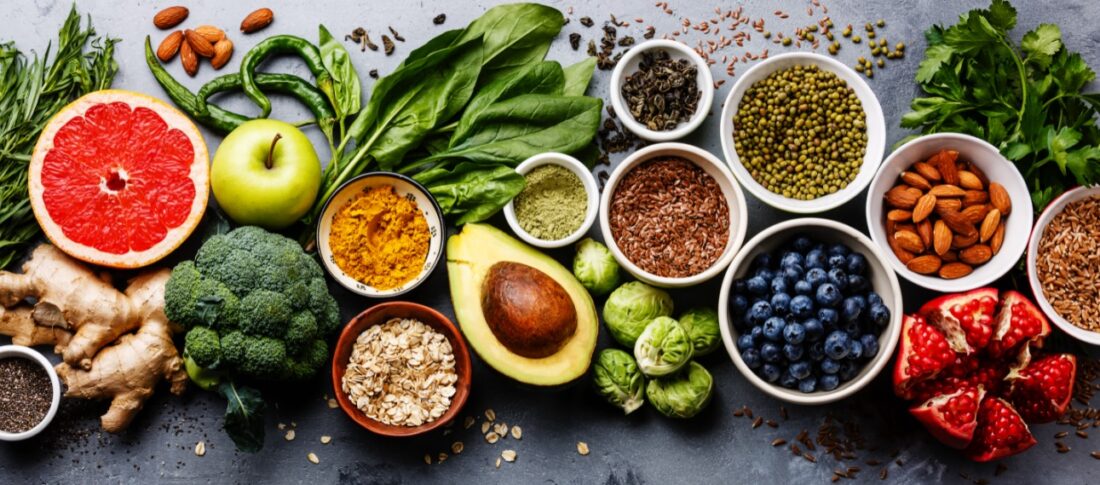
Summer is a time for enjoying fresh, seasonal produce and outdoor activities. However, it can also be a time when it’s easy to overindulge in sugary treats and processed foods, leading to energy crashes and cravings. To stay energized and satisfied throughout the day, it’s crucial to prioritize nutrient-dense foods that promote long-lasting fullness.
Incorporating Nutrient-Dense Summer Foods into Daily Meals and Snacks
Summer offers an abundance of fresh, nutrient-rich foods that can help you feel fuller for longer. Incorporating these foods into your daily meals and snacks can make a significant difference in your energy levels and overall well-being.
- Fruits and Vegetables:Summer fruits like berries, watermelon, and peaches are packed with fiber, vitamins, and minerals, contributing to a feeling of fullness. Include them in your meals, snacks, or enjoy them as a refreshing treat.
- Whole Grains:Opt for whole grains like quinoa, brown rice, and whole-wheat bread over refined grains, which provide more fiber and complex carbohydrates for sustained energy release.
- Lean Protein:Include lean protein sources like grilled chicken, fish, tofu, or beans in your meals to help you feel full and satisfied. Protein also aids in muscle repair and growth, important for maintaining active lifestyles.
- Healthy Fats:Incorporate healthy fats like avocado, nuts, and seeds into your diet. These fats promote satiety and provide essential nutrients for overall health.
Managing Portion Sizes and Meal Frequency
Managing portion sizes and meal frequency plays a crucial role in maintaining sustained energy and fullness throughout the day.
- Mindful Eating:Pay attention to your hunger and fullness cues. Avoid eating when you’re not truly hungry and stop eating when you feel comfortably full. This helps prevent overeating and promotes better digestion.
- Smaller, More Frequent Meals:Instead of eating three large meals a day, try spreading your food intake across five or six smaller meals. This helps regulate blood sugar levels, preventing energy crashes and cravings.
- Portion Control:Use smaller plates, bowls, and cups to help manage portion sizes. Be mindful of the amount of food you’re consuming and avoid overfilling your plate.
Mindful Eating and Recognizing Hunger Cues
Mindful eating is essential for maintaining a healthy relationship with food and achieving lasting fullness.
- Pay Attention to Your Body:Tune in to your body’s signals of hunger and fullness. Avoid eating when you’re bored, stressed, or emotionally triggered.
- Eat Slowly and Chew Thoroughly:This allows your body to register fullness signals and promotes better digestion. Take your time to savor each bite and enjoy the flavors of your food.
- Hydrate Adequately:Dehydration can often be mistaken for hunger. Drink plenty of water throughout the day to stay hydrated and prevent confusion between thirst and hunger.
Last Word
Summer is a time to embrace the abundance of fresh produce and enjoy delicious meals that nourish your body and keep you energized. By incorporating nutrient-dense summer foods into your diet, you can experience sustained fullness, combat cravings, and make the most of the season.
Remember to prioritize hydration, practice mindful eating, and experiment with new recipes to discover the joy of healthy summer eating.

